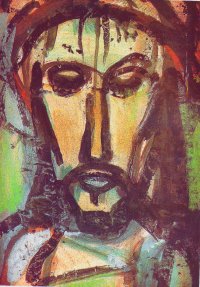Four years ago, when the owner of a rice mill offered him an advance of about $75, Gunamay* had no idea of the obstacles he would face in repaying it. The owner used the debt incurred by the advance to trap Gunamay’s family in slavery, forbidding them to leave his compound or seek work elsewhere before the debt was repaid. The owner provided Gunamay less than a dollar a day for the labor he, his wife and three of his five children – sons of only six, eight and 10 years of age – performed. Barely able to support his family on this wage, there was no way that Gunamay would be able to repay the loan, ensuring his family’s labor to the mill owner in perpetuity.
Gunamay, like millions around the world, had been tricked into a life of slavery through the illegal practice of debt bondage. The family’s situation was brutal: The mill owner forced Gunamay’s wife to perform exhausting physical labor while pregnant and assaulted his young sons when he felt they were not working hard enough. The children were unable to attend school, instead spending their days preparing rice alongside the adults and performing petty tasks for the mill owner.
Unwilling to watch their family suffer, Gunamay and his wife decided to flee the mill. They left their few possessions behind and escaped with their young children. However, the mill owner immediately tracked them down, capturing them at a nearby bus station and forcing them to return to work.
Though the mill owner may have thought he was safe oppressing Gunamay and his family, IJM became aware of his gross abuse of several families trapped in his mill. IJM agents compiled evidence of slavery at the mill, determined to see the families released. When presented with this proof, the local authorities agreed to intervene and rescue the individuals held captive by the mill’s owner.
With IJM’s assistance, the local government immediately raided the facility, rescuing 17 victims – including eight children – from slavery in the mill. The government issued release certificates, assuring the former slaves of their freedom.
The families released from slavery were conveyed to their home villages in safety, and IJM distributed vital provisions to them. Gunamay’s children plan to return to school soon. His family, along with the others released from slavery that night, no longer belong to the mill owner. Person by person and family by family, IJM will continue to work with local authorities to rescue people like Gunamay from the brutality of slavery.
-IJM News, July 2007
7.04.2007
Subscribe to:
Post Comments (Atom)

No comments:
Post a Comment